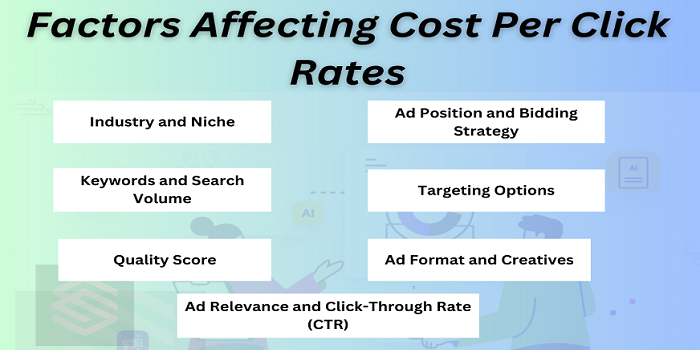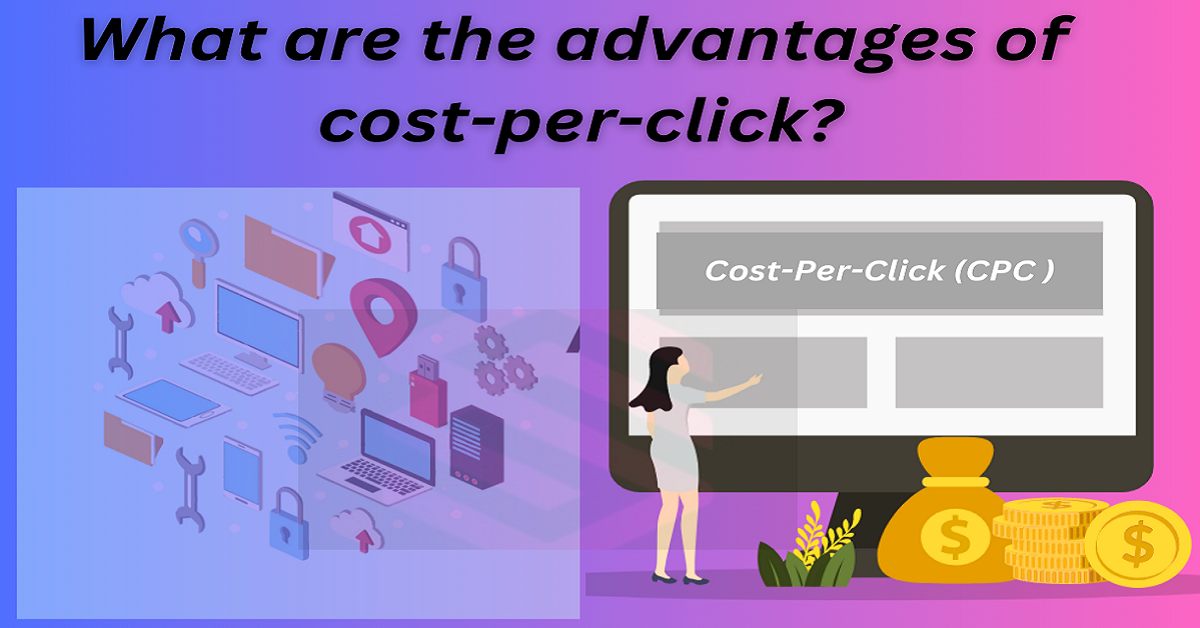Cost-per-click (CPC) is a digital advertising model where advertisers pay a fee each time their ad is clicked. It’s commonly associated with search engine advertising, social media platforms, and display networks. CPC is calculated based on the bid amount set by advertisers for specific keywords or audience targeting criteria.
Table of contents
Why CPC is Important
CPC is crucial in digital marketing for several reasons. Firstly, it offers a measurable and accountable way to track advertising effectiveness. Advertisers can directly attribute costs to the number of clicks received, allowing for precise ROI calculations.
Secondly, CPC enables precise targeting. Advertisers can choose which keywords or audience segments to bid on, ensuring that their ads reach the most relevant and interested users. This targeting capability increases the likelihood of conversions and reduces wasted ad spend on irrelevant clicks.
Furthermore, CPC provides control over advertising costs. Advertisers can set budget limits and bid amounts, allowing them to manage expenses and optimize campaign performance based on budget constraints.

Advantages of Cost-Per-Click
Cost-per-click (CPC) advertising, also known as pay-per-click (PPC), offers numerous advantages for businesses aiming to reach their target audience effectively. Transition words are used throughout this article to ensure a smooth and engaging reading experience.

| Headings | Descriptions |
| Targeted Advertising | One of the primary advantages of CPC is its ability to target specific audiences. By bidding on keywords related to their products or services, advertisers can display their ads to users who are actively searching for relevant information. This targeted approach increases the likelihood of engagement and conversions. |
| Cost Control | CPC allows advertisers to set a maximum bid for each click, providing control over their advertising expenses. This cost-control feature ensures that businesses stay within their budget while still attracting quality traffic to their websites. |
| Measurable Results | CPC campaigns provide detailed metrics and analytics, allowing advertisers to track the performance of their ads in real time. From click-through rates (CTR) to conversion rates, businesses gain valuable insights into the effectiveness of their advertising efforts, enabling data-driven decision-making. |
| Flexibility and Scalability | CPC campaigns offer flexibility in terms of budget allocation and ad customization. Advertisers can adjust their bids, ad copy, and targeting parameters based on performance data, optimizing campaigns for maximum results. Additionally, CPC advertising is scalable, allowing businesses to expand their reach as needed. |
| Brand Exposure | With CPC advertising, businesses can increase their brand’s visibility across search engines and relevant websites. Consistent exposure to target audiences helps build brand recognition and trust, leading to improved customer loyalty and retention. |
Other Advantages
Besides the above-mentioned advantages cost per click offers numerous other benefits as well, these include.
Competitive Advantage
CPC enables businesses to compete effectively in the digital marketplace. By strategically bidding on keywords and optimizing ad campaigns, companies can outperform competitors and capture market share, driving growth and revenue.
Enhanced Conversion Rates
Due to its targeted nature, CPC often leads to higher conversion rates compared to traditional advertising methods. By reaching users who are actively interested in their offerings, businesses can achieve a higher return on investment (ROI) and maximize their advertising spend.
Factors Affecting Cost Per Click Rates
Various factors can influence your Cost per click rates. Experts’ marketers should know these as well These include lots of things such as your keyword research techniques. Moreover, the volume of keywords you have selected to target the customers.
In addition, your industry niche has a great role in affecting the CPC as well.

- Industry and Niche: Different industries and niches have varying levels of competition and demand. Industries with high competition often experience higher CPC rates due to more advertisers vying for ad space.
- Keywords and Search Volume: The choice of keywords in your PPC campaign is crucial. But the keywords with high search volume and intense competition tend to have higher CPC rates. On the other hand, long-tail keywords with lower search volume may have lower CPC rates.
- Quality Score: Search engines like Google assess the relevance and quality of your ads, keywords, and landing pages through Quality Score. Higher Quality Scores can lead to lower CPC rates and better ad positions.
- Ad Position and Bidding Strategy: The position of your ads on search engine results pages (SERPs) influences CPC rates. Ads in top positions often have higher CPC rates due to increased visibility and competition. Your bidding strategy also plays a role in CPC rates.
- Ad Relevance and Click-Through Rate (CTR): The relevance of your ads to the search query and the CTR are important factors. Furthermore, Ads that are highly relevant with a higher CTR typically achieve better Quality Scores and lower CPC rates.
- Targeting Options: Targeting options such as location, device, demographics, and interests can affect CPC rates. That’s why highly targeted campaigns may have lower CPC rates as they reach more relevant audiences likely to convert.
- Ad Format and Creatives: The format of your ads (text, display, video, etc.) and the quality of your creatives impact CPC rates. Secondly, engaging ad formats and compelling creatives can improve CTRs and Quality Scores, potentially reducing CPC rates.
Conclusion
The advantages of cost-per-click (CPC) advertising are undeniable, for businesses looking to enhance their online presence, target specific audiences, control costs, and drive measurable results accordingly. Hence, by leveraging CPC effectively and incorporating transition words for clarity, businesses can optimize their digital marketing strategies and achieve success in today’s competitive landscape.
Read More : The Power of Long-Tail Keywords In SEO: Unlocking Hidden Gems
Unique FAQs
Quality score, keyword competitiveness, ad relevance, and industry trends can influence CPC rates.
By conducting keyword research, refining ad targeting, improving ad copy, and analyzing performance data regularly.
While CPC can benefit many businesses, suitability depends on factors such as budget, target audience, and advertising goals.
Yes, CPC can complement other strategies like search engine optimization (SEO), social media marketing, and content marketing for a holistic approach.
CPC’s targeted nature and measurable results contribute to a higher ROI by driving qualified traffic and increasing conversion rates.




